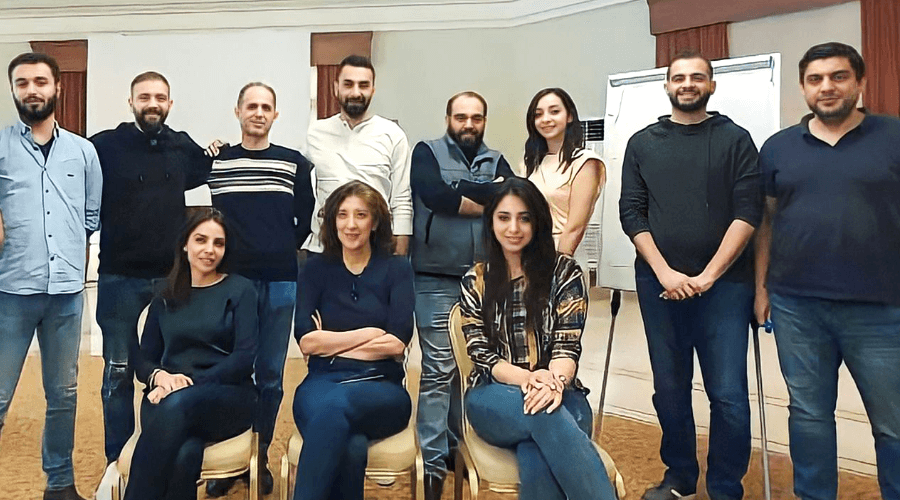How can technology make law more accessible?

Legaltech, an intersection of law and technology, has been transforming the legal industry over the past few years, enabling lawyers to streamline mundane tasks to enhance efficiency and productivity. Globally, the legaltech market is growing rapidly and is projected to reach $69.7 billion by 2032, according to Future Market Insights, presenting a compound annual growth rate of 8.9 per cent year over year. Regionally, the market is much smaller, but there are a handful of startups looking to digitise and disrupt the legal sector.
Since 2021, 10 legaltech startups of which the majority are based in either Egypt or Saudi Arabia, have raised over $2 million. Of these, seven were at the accelerator stage and the remaining were pre-Seed, highlighting the nascent state of the sector. While overall, the trajectory points towards growth in the region, the sector remains “greatly underserved” according to Nissreen Haram, co-founder of Jordan-based Qistas.
“Legaltech has largely focused on making legal professionals more efficient. And this is good. But it’s not enough. We must leverage technology to make law more accessible, i.e., ensure wider public access to legal information, legal advisory and essential legal services,” she says.
Most of the technology in the legal sector has focused on increasing the efficiency of lawyers, primarily through automating tasks like document creation and records filing. By 2024, legal departments are expected to have automated 50 per cent of their work, tripling their spend on legal technology. One of the pioneers of legaltech is LegalZoom, founded in the US in 2021 with the aim of allowing its customers to create legal documents without the need to hire a lawyer. The company raised more than $800 million in investment and went public on the NASDAQ in 2021. Over the years many startups like LegalZoom have emerged, but almost all have focused on the English-speaking markets.
“The legal sector has adopted technology, but the Arab legal sector has lagged behind. No one can claim until this point that the legal sector has been disrupted. It has increased the efficiency of lawyers, but technology has not radically impacted access to law or access to justice,” says Haram.
Qistas is hoping its technology will help to disrupt the legal sector in the region. The company offers intelligent search for Arabic legal content, having digitised the laws of Jordan, Palestine, UAE, Saudi Arabia and Egypt. It has on its platform more than 90,000 legislations and 4.1 million court decisions. In 2010, the team behind Qistas launched CyberLaw, its tech solution designed to make law more accessible and searchable through natural language processing (NPL), the first solution of its kind in Arabic.
“By adopting and embracing technology and working with our data science team, we expect to supplement our search engine very soon with a solid semantic search. Lawyers can now go and not only enter key questions, but ask questions in natural language,” says Haram. “Down the road, this will be the basis and foundation for solutions that will enable the general public to interact more with the law.”
Where Qistas and CyberLaw differ from current solutions in the market is in its primary aim – to make law more accessible, more engaging and easier to navigate. For Haram, enabling this sort of access and ease of use is crucial, particularly for the more vulnerable members of society.
“We hope to release smart legalbots that help the general public address common questions in widely relevant areas of law, such as employment, personal status, and business licensing,” she says. “Advances in Legal NLP are also required to offer badly needed smart legal drafting tools, automated topical alerts to legal news, and textual classification tools.”
Questions over labour rights, rights of employment and women’s rights when it comes to marriage and divorce are common areas of the law that concern the general public. A service like CyberLaw can be the initial step when gathering information, before needing to escalate the situation to a lawyer. It is, according to Haram, “in the interest of governments to educate the general public about their legal rights”, as it will “help deflect pressure on valuable government resources”.
Advances in legaltech can often posit the question of whether lawyers can be replaced. No legaltech startup has managed such a feat, but the closest one might get to such a scenario is with generative AI, like Chat GPT.
“Legal research is at a pivotal point. Law is a language game – legal analysis, interpretation, reasoning, is ultimately a language game and one thing generative AI is really, really good at is the language game, says Haram. “What I see coming out of [generative AI] seems not only the generation of language, it is also the consideration in the amount of logic. I don’t know whether AI will replace lawyers, but it will break the current monopoly that lawyers have on the law. There will be no room for lawyers who are just information brokers.”
The ability to input a case or ask a question pertaining to the law of a country and receive a response that highlights relevant cases will allow the public to better understand their rights. It will also save lawyers on paralegals and make legal research more engaging and natural.
“The other promising area is legal drafting,” says Haram. “It is bound to impact access to law favourably.”
Fears over privacy initially made Haram weary of using Chat GPT, but after testing it out, the results have been impressive. However, for it to work, it requires data and content of local laws, which is “expensive to create, acquire and enrich”, but it is this content that Qistas and CyberLaw have which can allow them to work with Chat GPT.
“It’s in everyone’s interest to make law accessible,” adds Haram. “Rule of law is based on access to law - if it’s too expensive to access them, then the law doesn’t exist as far as you’re concerned.”


